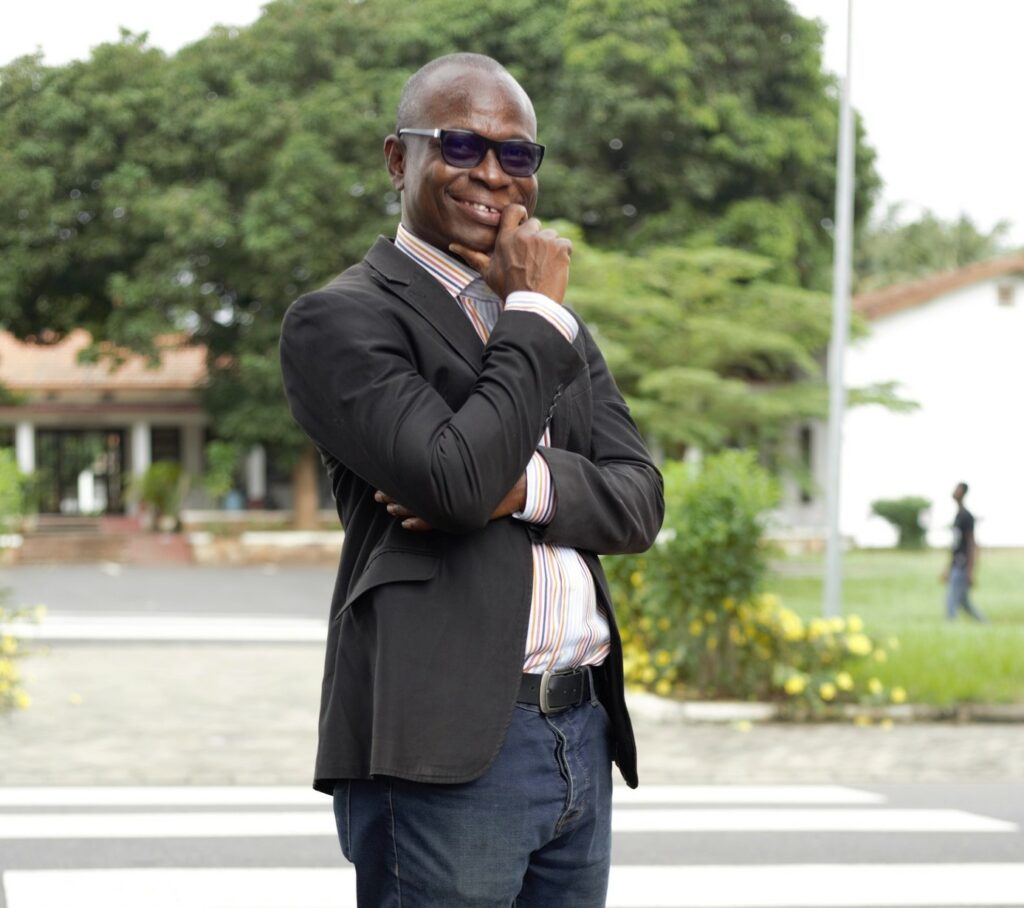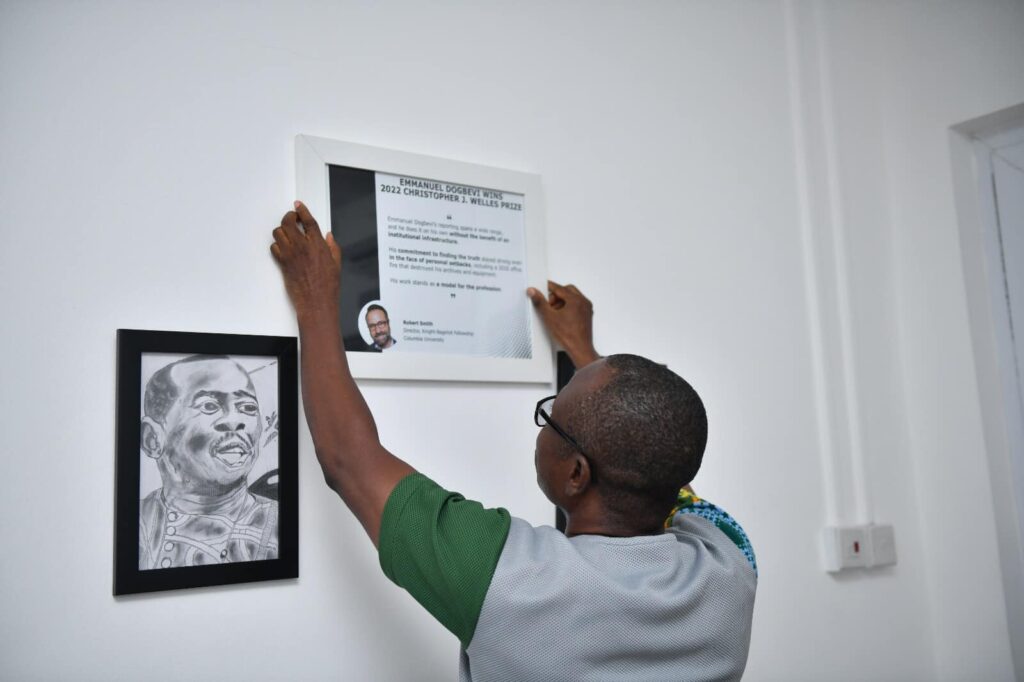From the surgeon’s table to the editor’s desk – Getting you the stories

It was sometime in August 2010. I had arrived at the decision after seven years of contemplating and vacillating between uncertainties and hope. The condition wasn’t clear, as lab test after lab test would give different indicators. One time it would be normal, then another time it would shift between normal and something close to positive, but certainly not decisive. The specialists at the Korle-bu Teaching Hospital would say not to worry, but let’s keep trying treatments.
Different treatments, often expensive, would give hope of resolution, but then would relapse. I wasn’t in any kind of danger, but it wasn’t a condition that should be left untreated. The numerous tests over the seven year period didn’t give a clear picture, until one specialist suggested a surgery. It wasn’t major, but he recommended it could help bring some resolution to the condition.
Again, this wasn’t a condition that endangered my life, but it had the potential to make me uncomfortable but wasn’t fatal. The specialist looked at me sometime in July of that year. “We could try that procedure. It could help,” he said.
But it was up to me to decide. It wouldn’t be my first major surgery; but would be a significant one. On reflection, I decided to have it done.
The Tuesday before the Wednesday, I had to fast. No solid food, except liquids. I psyched myself for it. All these while I was working on stories. Ghana Business News was about two years old. Started in December 2008, the website had become popular – feedback was overwhelming; from far and near. Emails, phone calls, comments to stories and other engagements indicated a growing readership. I needed to continue to be consistent in publishing. Developing story ideas, following through with them and completing them. More importantly, keeping with the pace of doing original, indepth content that set the website apart. The pressure was strong. The intensity was overwhelming, but I believe I was built for it, I was intent on keeping up the pace, and that meant working consistently whether rain or shine, in hard times and in good times.
After I gained some level of full consciousness, as the effects of the anesthesia wore off, I had only one thing in mind. Finish that story. I dragged myself from bed, and onto the editor’s desk.
As I prepared psychologically for the surgery, I was also mentally tuned to working on stories, and doing regular updates.
Wednesday morning came, and I had to be up early as usual to do updates, and then get ready to hit the road to the hospital, and onto the surgeon’s table.
I was solemn and composed, and so many thoughts crossed my mind. ‘Would it be necessary? Do I really need to do this? It’s not a condition that threatened my physical state, why should I do it?’. But the die was cast. I would take my chances. It is what it is. There is no turning back.
What made it even easier was the fact that the surgeon was a good friend, and I knew some of the other health workers. I had a sense that they were there to help. That they cared for me, and everything would be fine.
It was time to go. I picked a taxi on the short trip to the hospital and onward to the surgical ward. The doctors were expecting me. My specialist friend welcomed me with a reassuring smile. I settled in, and was prepared for the theatre.

At this point I was calm and ready. I had read enough about the condition, it wasn’t life-threatening, but treating it with surgery, could improve my quality of life. The uncertainty of its existence or non-existence as the many lab tests over the years have shown could be mentally exacting, even though I took it in my strides stoically.
The day before I had been working on an original story. It was an important business story. It was timely, relevant and exclusive. I had planned for it to be the top story. But the activities and thoughts of the day were enough to slow me down. I therefore planned to finish it after my return from the hospital.
I laid on the surgeon’s table calmly and hopefully. The anaesthetist, also a good friend. Calmly looked over me, and with a smile greeted. I responded. He walked me through and told me the procedure he was about to do. It was partial, so I won’t fully fall asleep. My eyes would still be opened. I could see but won’t feel the performance of the surgery, he reassured me.
I wasn’t even getting paid for it. I was paying to do it. The public must know. The public must be informed. If they used it, they might find it useful. It would improve their decision-making. Maybe the society, through my journalism, might get better.
After the anaesthesia was applied, in no time, I half lost consciousness. The surgeon got to work. I could see him bend over me and got to work. But I felt a slight pain and I groaned. Then some more anaesthesia was applied, and the numbness increased. I could faintly see the surgeon at work as the nurses and assistants passed one instrument after the other to him. I could faintly hear their voices too.
The procedure was done in no time, and the surgeon sutured the spot. I was momentarily woken up, and swiftly lifted from the surgeon’s table and transferred onto a stretcher and pushed to the recovery ward.
Apparently, I wasn’t to spend a long time at the recovery ward. A relative showed up and I had to be taken home.
I dragged myself indoors, and headed straight to bed. I needed to catch some rest and hopefully, when the anaesthesia wears off, I would see what’s next.
Just across the living room, I knew my editor’s desk was waiting. Two years into the beginning of Ghana Business News, I couldn’t afford an office. I was working from home. I still do a lot from home, though. In fact, I am writing this story from home. A lot of things drive me. One of them is the public interest. The need to contribute my bit to make my society better. It’s the reason I do journalism. It’s the reason, I believe that I just didn’t become a journalist, but that journalism chose me.
After I gained some level of full consciousness, as the effects of the anesthesia wore off, I had only one thing in mind. Finish that story. I dragged myself from bed, and onto the editor’s desk.
I had put all the information on my laptop desktop. I sat up. Painfully sat up, enduring the moment as I punched away at my laptop keyboard, finishing the story.
I wasn’t even getting paid for it. I was paying to do it. The public must know. The public must be informed. If they used it, they might find it useful. It would improve their decision-making. Maybe the society, through my journalism, might get better. The inequality gap might be closed. There would be more accountability, freedom and justice.
As I look back on that day, 13 years ago. If I had to get onto the surgeon’s table again, when I get back home, I won’t hesitate to get back onto the editor’s desk. I have work to do. I have a country to serve. I have people waiting to be informed. My duty is to hold the powerful to account – it’s non-negotiable.
There are not always sweet results. But there have been some results. When I look back at some of the impact of the journalism I do, it’s been worth it. My works on illicit financial flows, e-waste, corruption and others are paying off – even if slowly. Legislation has been passed, some business people are getting better business ideas – like one businessman I never met who called to thank me for a story I did which taught him to re-calibrate his business processes, saving him 60 per cent in production cost eventually.
My works have inspired some other journalists to do better and showed to the rest of the world that journalism is important in shifting perspectives and getting things done.
You may see and read the stories, but may never know what it takes to write them. It’s often a thankless job, being a journalist, even risky, but it’s an important job.
By Emmanuel K Dogbevi
Email: [email protected]
Copyright ©2023 by NewsBridge Africa
All rights reserved. This article or any portion thereof may not be reproduced or used in any manner whatsoever without the express written permission of the publisher except for the use of brief quotations in reviews.
